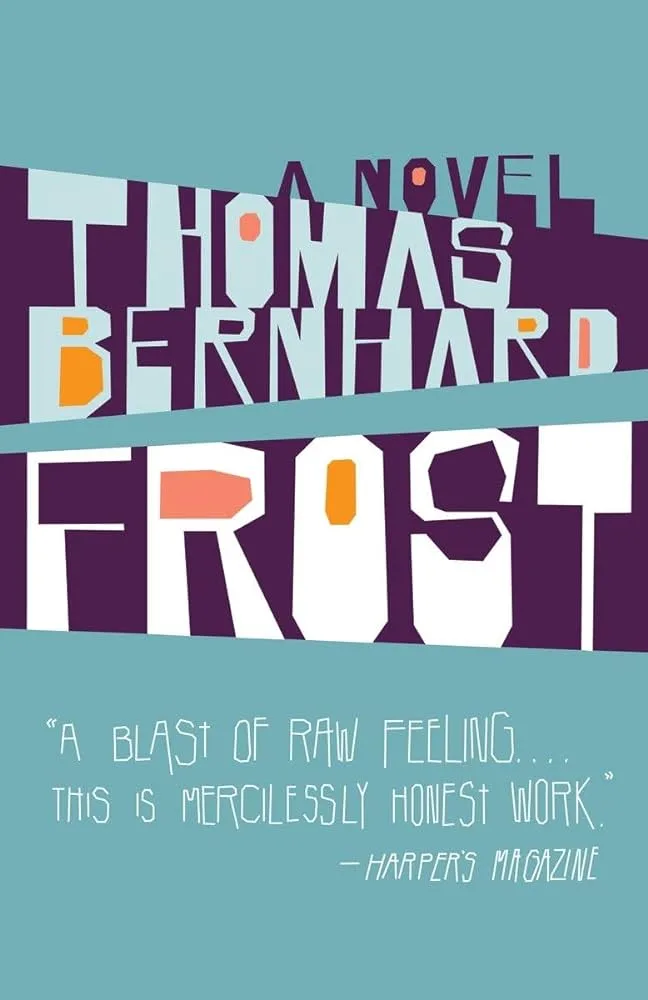Thomas Bernhard’s Breath

Writing is like breathing for me. I can’t live without it.
Thomas Bernhard
The long German word “Nestbeschmutzer,” roughly meaning “one who dirties their own nest,” is used for those who tarnish their own country or family. The person synonymous with this word in Austria is the playwright and poet Thomas Bernhard.
Austria, Bernhard’s homeland, was the muse he loved to hate. Bernhard, the author of 16 novels, short stories, poetry, over 20 plays, and five impressive volumes of memoirs, mocked Austria’s Nazi legacy, symbolized on stage by a heap of manure. He didn’t just think Austria had its unique brand of Nazi-Catholicism; he also criticized the seemingly liberal, upper-middle-class artistic society. Moreover, the feelings between Bernhard and his country were mutual. Austrians both loved and hated him; they awarded him the country’s most prestigious literary prizes but also resented him for constantly reminding them of the Nazi legacy many Austrians desperately wanted to forget.
In 1988, on the fiftieth anniversary of Austria’s annexation by Adolf Hitler, Thomas Bernhard was commissioned to write a play. At first, he refused to attend the commemoration ceremony, but he couldn’t resist such an opportunity to poke fun at Austria’s political and cultural elite, so he wrote the controversial play.
The scandal of Bernhard’s “Heldenplatz (Heroes’ Square)” began long before its opening night. The play, named after Vienna’s square where Austrians enthusiastically welcomed Hitler in 1938, tells the story of a Jewish Austrian who returns to Vienna after World War II, only to be horrified by the lingering anti-Semitism in the country and ultimately committing suicide. When the script, which included lines like “Now there are more Nazis in Vienna than in ’38,” reached the press, right-wing politicians called for the director to be expelled from Vienna. The premiere of the play at the Burg Theater was placed under police protection, and at the end of the performance, “shouts, boos, applause, and whistles mingled.”
Dazed by the reaction to Heldenplatz, Bernhard, aged fifty-eight, took his own life three months later. He had suffered from chronic lung illness since adolescence and had spent the last ten years of his life under constant medical supervision. Bernhard, who never gave up disturbing everyone and speaking his mind, delivered his final blow to his homeland upon his death, leaving a will that banned the publication, production, and even reading of his works in Austria during the copyright period, “including letters and scraps of paper.” Bernhard’s merciless anger towards his homeland was almost comical. His attempts to circumvent the ban, such as holding the Vienna Festival sixty kilometers beyond the border and having his plays performed in Bratislava, would surely have amused the master of satire and dark humor.
Born in February 1931 in the Netherlands to unmarried mothers in a clinic for unmarried mothers, Bernhard’s mother was apparently raped. His father, a carpenter and petty criminal, never acknowledged him, and Bernhard, as a child, had to undergo a blood test to establish paternity, which humiliated him throughout his life.
His grandfather, with whom he grew up and whom he idolized, was an anarchist and a novelist. They used to take walks where Bernhard received impromptu lessons on nature and philosophy. When Bernhard was six, this came to an end; his mother married and the family moved to Germany. Bernhard, a chronic bed-wetter, remembers being ridiculed by bullies at school. At eight, he was sent to a home for “maladjusted children,” and his only friend was a boy with deformed hands and legs. Bernhard’s autobiography, which he described as “compiled from remembered faces, hundreds and thousands of fragmentary experiences,” consisted of disturbing writings that wounded his soul.
In 1943, he was forced to join the Hitler Youth, representing the Hitler Youth, which he found consisted of “constantly singing the same stupid songs and walking downhill.” Daily air raid drills were conducted, and Bernhard would later write in his memoirs about that period, “The streets were full of broken glass and rubble, and there was the unique smell of total war in the air.”
After the war, at the age of fifteen, he began working as an apprentice in a grocery store. Unlike the misery at school, Bernhard loved this job. He got along well with the customers and enjoyed their frank and solid way of speaking, which helped shape his off-topic writing style. But in the winter of 1949, after a bout of flu, he was hospitalized with lung infection. This was the beginning of a lifelong chronic illness.
While in the hospital, his grandfather died and left his typewriter to him. Bernhard began to breathe with the books he found on his grandfather’s shelves: Shakespeare, Goethe, Dostoevsky… And he began to systematically work on his memories, “collecting evidence” about his own past and taking notes on small pieces of paper. He wrote, “I had discovered my method of work. My own shame, my own form of savagery, my own pleasure…”
During his time in the hospital, he published his first short story, a tribute to his grandfather, and then studied acting at the Salzburg Academy of Music. He published his first poetry book, “Auf der Erde und in der Hölle” (“On Earth and in Hell”), in 1957. His poems depicted bleak scenes of decay, where flowers “bloomed in blood” and fears “blew in the wind.”
Bernhard’s foray into novel writing was almost accidental. When his fourth poetry book, “Frost,” was rejected by the publisher, Bernhard, who withdrew, reappeared seven weeks later with the draft of his first novel, also called “Frost.” The book tells the story of young Bernhard smelling the rotting bodies still buried beneath the rebuilt streets of Salzburg.
His novels, which could stretch up to a hundred pages without paragraph breaks, were in the form of long monologues, passing rapidly through every emotion from absent-mindedness to hysteria. Most of his characters were either fatally ill, insane, or alienated from society as a whole.
Much of his emphasis on illness came from spending several years in hospitals and sanatoriums due to various lung ailments, including tuberculosis, as a young man. Medical professionals often featured in his early fiction. His first novel was set in a sanatorium, while another depicted the surreal adventures of a doctor in a small town. His works drew strength from anger and fear, but he found laughter in the darkness:
Bernhard’s extremely pessimistic worldview was shaped by all the elements; cruel anger towards an indifferent universe, lack of faith in human relationships, and a manic quest for aesthetic perfection were likely determined by the hardships he experienced in his youth. Ironically, Bernhard, who was obsessed with suicide in his youth, found a desire to live during the years he spent in hospitals and sanatoriums. He would write in the death ward where he felt closest to death, “I wanted to live; nothing else mattered. To live, to live my life the way I chose, and for as long as I chose. This was not a vow, it was a decision made by a resigned patient when the breath of the other patients ceased.”
What Bernhard wrote was not nihil









